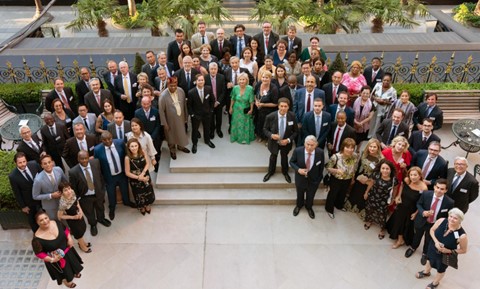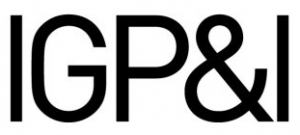
Requirements related to sustainability and corporate social responsibility (CSR) are getting increasingly stricter. How can companies ensure compliance without feeling overwhelmed? We spoke with someone with first-hand experience.
Written by
Published 10 September 2024
Following the entry into force of the Norwegian Transparency Act in 2022, Gard, like many other enterprises in Norway, has implemented due diligence measures to identify actual and potential risks of adverse impacts to human rights and decent working conditions within its own operations and supply chain. This includes starting a dialogue about Corporate Social Responsibility (CSR) with certain claims services providers.
One of them is the BUDD Group, a service provider in 28 ports across the world and a Gard listed correspondent. With 100 staff located in 30 countries, the issue of how to collaborate with and care for a multi-cultural and multi-lingual manpower, can be a tricky one. Yet, challenges go hand in hand with opportunities. Gard invited Budd to participate in a CSR assessment early last year, which was followed by a reassessment in 2024. In this article, we speak with Benjamin Budd, Deputy Director and last in the Budd family line, about their experience and CSR journey so far.
Let’s start with your “starting point” – how strict are the CSR reporting requirements that currently apply to your Group?
“Currently, our company is not subject to any CSR reporting requirements. Although France implemented stricter reporting standards in December 2023, in line with the EU's Corporate Sustainability Reporting Directive (CSRD), these regulations do not apply to smaller companies like ours. The same applies throughout our network of offices in Africa, Asia and the South Pacific. Therefore, Gard’s initiative was an opportunity for us to stay ahead,” said Budd.
“Prior to taking part in the Gard assessment, however, we had begun our CSR journey by drafting a group charter of ethics and ensuring that all offices and subcontractors return a signed copy. Furthermore, most of our clients had already made us aware of some CSR issues by annually requesting confirmation that we comply with the legislation by which they themselves are bound, such as the UK anti-bribery act, GDPR, Modern Slavery and Human Trafficking regulations and international sanctions. However, this did not cover all aspects of CSR. Since then, we have seen the importance of having a more comprehensive and measurable CSR policy which we now view as a matter of priority.”
Gard’s assessment
The first stage of Gard’s CSR assessment contains a short questionnaire covering topics such as labour and human rights, workers’ health and safety, equality diversity and inclusion (EDI), and measures to prevent discrimination and harassment. Budd’s answers to this survey were then discussed with representatives in its head office and with representatives from Gard Claims and Sustainability departments. Finally, the company received follow-up comments and recommendations for possible further improvements. It was suggested that in addition to the policies and measures already in place, additional documentation and more standardised and clearer procedures could bring Budd to the next level.
In May this year, Budd was approached again for a follow-up. As a result of the implemented measures, Budd’s CSR maturity level has significantly improved in less than a year. Specifically, in one of the assessment areas, their maturity rating has advanced from medium to high. This demonstrates the effectiveness of their efforts and commitment to enhancing their CSR practices.
How did you experience this process?
“The CSR assessment was enlightening for us in many ways. The Gard team guided us through the requirements step by step, carefully making sure that we understood each point. It helped us understand the need to formalise some practices that we already had in place, like our external service provider selection criteria. Most of all, the follow-up conversations with the Gard team really helped us determine the areas where we needed to improve. And the summary was essential in telling us precisely which documents we had to produce and how to go about it.”
“Since we started implementing our CSR policies, we have been continuously sharing the message with our staff and subcontractors. We know we still have a lot of progress to make and are reflecting on how best to track progress of implementation.”
Key take aways and recommendations
Any thoughts for the future? How do you intend to keep integrating CSR and environmental aspects into your practices?
“We see CSR as becoming a key issue in the future. But most of all, we see it as an opportunity. Our CSR auditing process will enable us to evaluate areas where we can improve and identify the means to do so. This will help us offer better working conditions to our staff and subcontractors, but also to improve our standards of operation. On the environmental front, we are harnessing technology to reduce our ecological footprint. By optimising our use of new communication tools, we aim to improve interactions with clients and between our offices, minimising the need for travel and reducing carbon emissions.”
Any recommendations to others who want to improve on CSR but don’t know where to start?
“Refer to Gard or to other forward-leaning companies! For specific documents, look for examples from industry peers. We looked at P&I clubs’ documents as an inspiration. Engage in online research and ask industry experts you might know. It may seem daunting at first but if you take it step by step, starting with what is most obvious – for us, this was the charter of ethics – it becomes easier,” said Budd.

Meeting in Paris: In 2023, staff from the Budd group representing 26 countries converged to Paris to celebrate Budd’s 170th Anniversary.
For more information on how Gard complies with the Norwegian Transparency Act, visit this page. Gard’s annual reporting on Human Rights Due Diligence (our Transparency Act report) can be found here.
We wish to thank the BUDD Group for sharing their experiences and reflections with us for this interview.
Related reading:
Gard offers ESG guidance on ship repairs and recycling - Gard
Shipyard working conditions and the Norwegian Transparency Act - Gard

Benjamin Budd, Deputy Director in the BUDD Group






